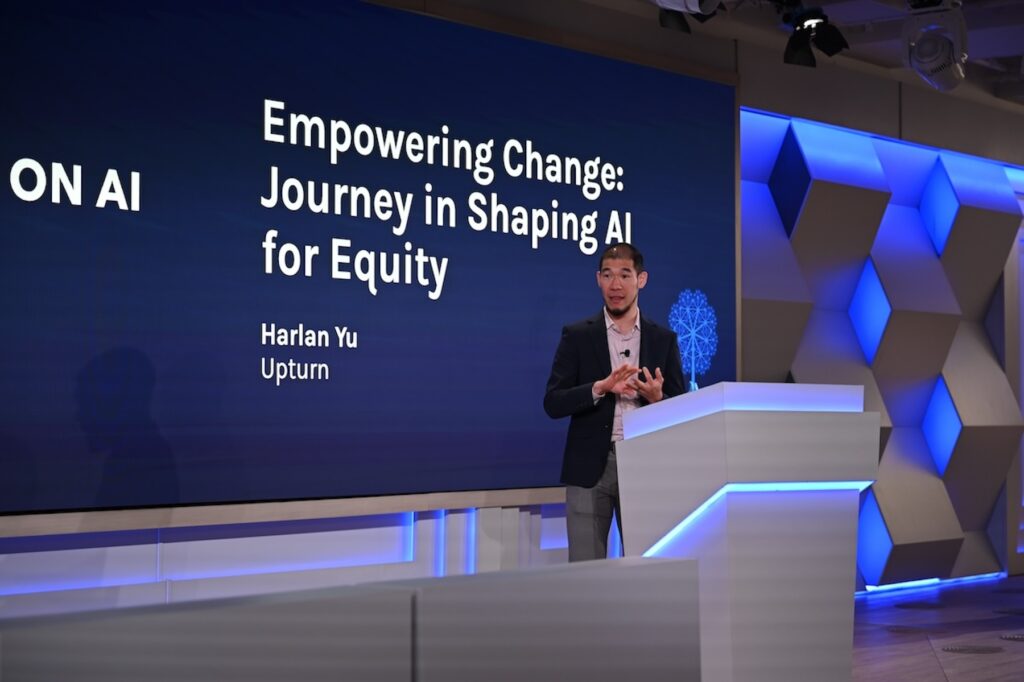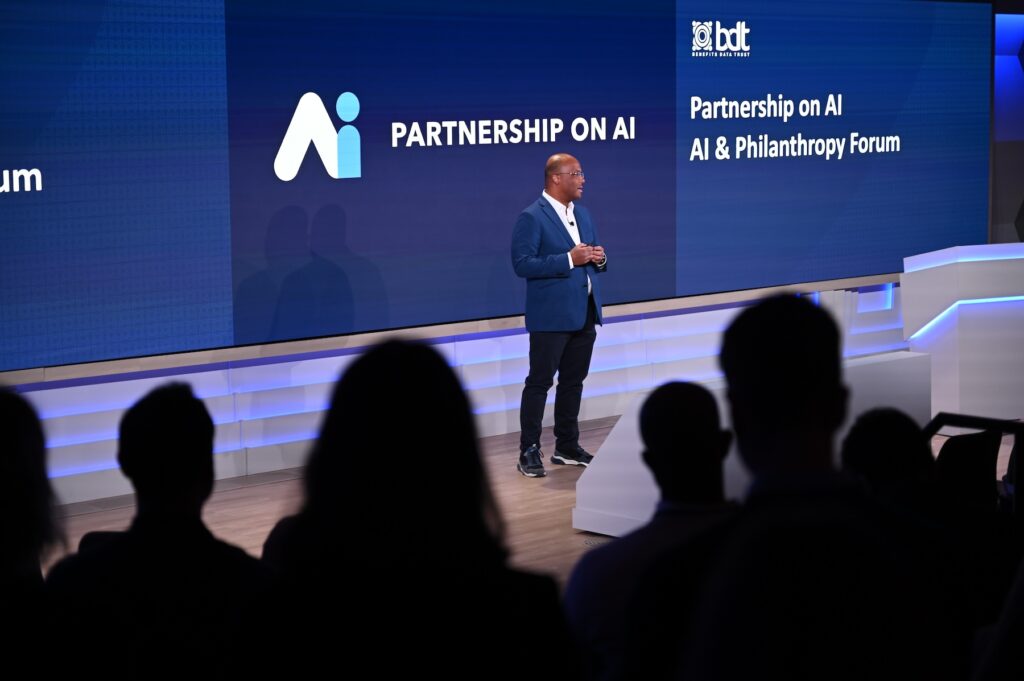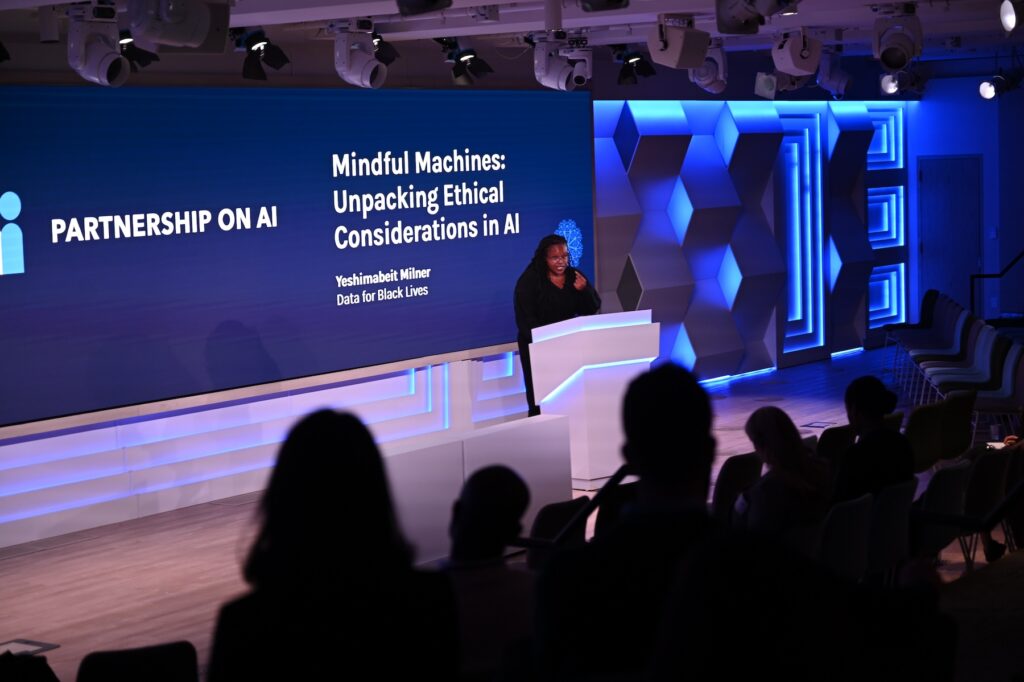The development and use of AI systems is multifaceted and evolving. While AI technologies hold immense potential for positive societal impact, they also bring about challenges related to fairness, transparency, and accountability. One significant issue is the lack of diversity and representation within the AI workforce, which can contribute to biases in algorithmic decision-making. Research has highlighted disparities in facial recognition systems, which often exhibit higher error rates for women and people with darker skin tones. Additionally, concerns have been raised regarding the exacerbation of societal inequalities through automated decision-making in areas such as criminal justice, healthcare, and hiring processes.
Efforts to address these challenges include the development of fairness-aware AI or machine learning algorithms, increased diversity in AI research and development teams, and the implementation of regulatory frameworks to ensure accountability and transparency in the deployment of AI systems. However, achieving true social equity in AI remains a complex and ongoing endeavor requiring collaboration between policymakers, technologists, ethicists, and communities affected by the technology.
Philanthropic organizations play a critical role in driving change towards equitable AI. By leveraging data-driven approaches, these organizations can support the development of develop tools and solutions to address system biases in these systems. Moreover, philanthropic organizations are able to engage and collaborate with communities, an essential component in designing and implementing equitable AI solutions. Partnership on AI recently held its inaugural AI & Philanthropy Forum on March 20th in New York City which fostered meaningful conversations and collaborations, emphasizing strategic collective action to address the societal impacts of AI.
Philanthropy as a Catalyst for Change
Philanthropic efforts must prioritize and elevate intersectional perspectives across sectors to ensure the development of inclusive AI. PAI led the discussion amongst diverse voices and communities, such as those represented by Harlan Yu of Upturn, Trooper Sanders of Benefits Data Trust, and Yeshimabeit Milner of Data for Black Lives. As instrumental community figures leading the charge in shaping these initiatives, they were invited to share their work with the philanthropic community and foster deeper conversations related to their work in the space.

Harlan Yu presenting a lightning talk at the AI & Philanthropy Forum in NYC
”I believe that if we can focus the AI conversation on equity and justice and on the interests of black, brown, poor, disabled, immigrant, and LGBTQ+ communities and people then we have a shot at redefining society’s relationship to technology and addressing the material harms and structural injustices that too many Americans still face today.”
Harlan Yu, Executive Director of Upturn, discussed how his organization strives to advance equity and justice in the design, governance, and use of technology. With a focus on technology’s impact on policing and the criminal legal system, Upturn advocates for policy changes informed by rigorous research and community collaboration. Upturn’s approach to technology and justice is informed by a broad range of perspectives and experiences, including computer science, social science, law, and policy. They strive to ground their work in community and lived experiences. By partnering with a diverse network of advocates and policymakers, Upturn works to ensure that technology advances justice rather than amplifying inequalities.
Check out Harlan’s lightning talk here.

Trooper Sanders presenting a lightning talk at the AI & Philanthropy Forum in NYC
“Today we’re introducing AI into systems and domains where we know there are deeply entrenched inequities and so to get the most out of it we’re going to have to address those things because even the best technology in a rotten and poisoned system is going to create harm.”
Benefits Data Trust CEO, Trooper Sanders, discussed how his organization envisions a world where eligible individuals receive dignified and efficient assistance to access essential benefits and services. By creating smarter ways to navigate social safety nets, BDT aims to promote economic mobility and well-being. Their innovative approach combines data, technology, and policy change to address systemic barriers to accessing critical resources.
Check out Trooper’s lightning talk here.

Yeshimabeit Milner presenting a lightning talk at the AI & Philanthropy Forum in NYC
“This is a significant amount of work, and groups like ours have been able to do a whole lot with a little. But what would be possible if we received support? If we were given the trust that we have earned as leaders with proven results instead of suspicion, surveillance and control? We can’t build trustworthy artificial intelligence systems through trust based philanthropy if we chose to not trust people because of preconceived notions. And a solution that doesn’t involve those directly impacted isn’t a solution at all.”
Yeshimabeit Milner who founded Data for Black Lives to challenge discriminatory uses of data and algorithms across systems, highlighted relevant issues facing historically excluded audiences in the AI space. Through research, advocacy, and movement-building, D4BL supports grassroots racial justice organizations in leveraging data and technology for positive change. With a national network of scientists and activists, D4BL strives to build a future where data and technology serve as forces for good in Black communities.
Check out Yeshimabeit’s lightning talk here.
Despite progress, significant challenges remain in achieving social equity in AI. Ongoing barriers necessitate collaboration and collective action across sectors. PAI’s AI & Philanthropy Forum underscored the critical role of philanthropy in advancing social equity in this space. By continuing to prioritize inclusivity and collaboration, we can create an AI landscape reflective of our values and aspirations.
Inclusive Development with PAI
PAI emphasizes the importance of inclusive AI development, advocating for diverse stakeholder involvement in design processes to create equitable systems. Resources, such as the “Making AI Inclusive: 4 Guiding Principles for Ethical Engagement,” outline recommendations, emphasizing early adoption of inclusive strategies and ethics training. Philanthropic initiatives can drive conversations and actions that promote genuine inclusivity in AI/Machine Learning technologies, as outlined as a necessary step in social inequality in the 2022 “Making AI Inclusive” white paper.
In 2023 PAI launched the Global Task Force for Inclusive AI, uniting experts across academia, civil society, industry, and policy to establish concrete guidance to implement ethical public engagement practices in AI development. This work focuses on addressing algorithmic discrimination and social harms by responding to the call for the engagement of a diverse body of stakeholders and citizens in AI development in the White House Blueprint for an AI Bill of Rights while also being intended to strengthen the delivery of global policy frameworks, such as the EU AI Act and NIST Risk Management Framework. By fostering partnerships between technology developers and community-based organizations, the Task Force works to center the perspectives of historically excluded communities in AI development.
In PAI’s research and programming, Fairness, Transparency, and Accountability, are focal points in the efforts to address challenges in measuring and mitigating algorithmic bias and fostering more inclusive AI development teams. Through initiatives like ABOUT ML, we work to establish guidelines for documenting machine learning systems, aiming to set industry standards for transparency.
The report “Eyes Off My Data: Exploring Private Federated Statistics To Support Algorithmic Bias Assessments Across Demographic Groups” delves into the challenges of ensuring fairness in algorithmic systems. It highlights the need for rigorous pre- and post-deployment fairness assessments, particularly focusing on the complexities of collecting and using demographic data. The use of differentially private federated statistics emerges as a potential solution to protect user privacy while conducting post-deployment assessments.
Achieving social equity in AI requires concerted efforts and collaboration. Philanthropies play a crucial role in driving change by prioritizing diversity, fairness, and transparency in AI development. Leaders in the space, Harlan Yu, Trooper Sanders, and Yeshimabeit Milner, underscore the importance of inclusive practices and community engagement in shaping equitable solutions. Partnership on AI’s work and research demonstrates a commitment to fostering inclusivity and ethical engagement in AI. By addressing algorithmic bias and advocating for diverse representation, these efforts pave the way for a future where AI serves the common good, reflecting our shared values and aspirations through technology.



![$hero_image['alt']](https://partnershiponai.org/wp-content/uploads/2024/04/philanthropy-forum-1800x945-1.jpg)